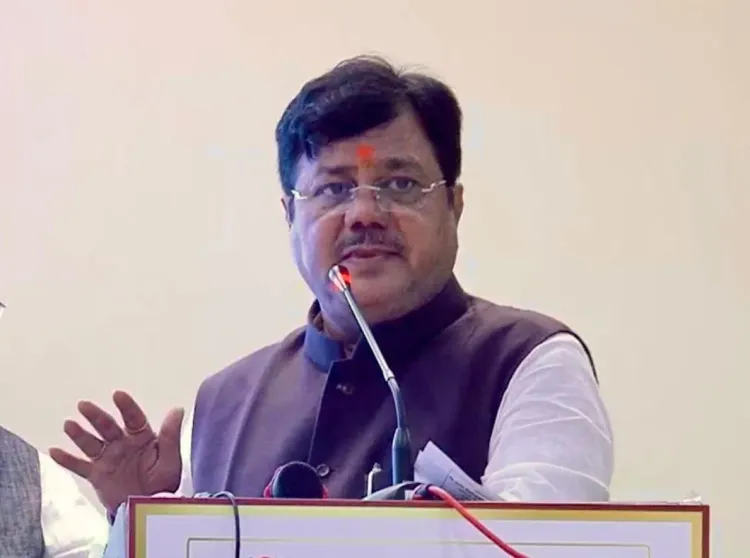How Can Maha Boost Redevelopment of Housing Societies?

Synopsis
Key Takeaways
- Eligibility criteria for self-redevelopment may now include buildings over 30 years old.
- A one-window system for clearances aims to simplify the redevelopment process.
- Members of housing societies will benefit from a 10 percent increase in carpet area.
- Incentives include exemptions from Goods and Services Tax and Land Under Construction Tax.
- Slum rehabilitation projects can be integrated into the self-redevelopment framework.
Mumbai, July 14 (NationPress) In a significant effort to enhance the self-redevelopment or group self-redevelopment of cooperative housing societies in Maharashtra, a study group led by state council legislator Pravin Darekar has proposed a series of robust recommendations. The report advocates for establishing eligibility criteria for self-development, implementing a one-window system to streamline all clearances, and introducing incentives such as floor space index adjustments, reductions in transferable development rights (TDR), and exemptions from Goods and Services Tax, Land Under Construction Tax, and interest on loans. It also suggests permitting the redevelopment of structures located along narrow roads.
The committee presented its findings to Chief Minister Devendra Fadnavis on Monday for further consideration.
Furthermore, the committee has recommended that regular credit facilities be available for self-redevelopment initiatives and that an independent framework be established by the state government to provide institutional backing and guidance for such projects. They have proposed that slum rehabilitation initiatives could also be completed through self-redevelopment methods.
The group has also outlined strategies for the redevelopment of both cess and non-cess buildings. Although the government has initiated efforts to facilitate conveyance to housing societies, the committee has suggested various measures to eliminate obstacles, ensuring that housing societies can obtain deemed conveyance more efficiently.
The committee's report indicates that the eligibility criteria for self-redevelopment or group self-redevelopment should be modified so that buildings aged 30 years or older qualify. The commencement date for property eligibility will be determined based on the earlier of the possession certificate receipt or the initial property tax payment date.
“If a building is deemed unsafe, the corresponding cooperative housing society or apartment must alert either IIT or VJTI. Should a report indicate that a building poses safety risks, the eligibility criteria detailed in Serial No. 1 will apply to these structures,” stated the committee.
Additionally, if a thorough assessment of buildings affected by natural or human-made disasters concludes that a structure is unsafe, the respective cooperative housing organization will be notified by either IIT or VJTI. In such cases, the eligibility criteria from Serial No. 1 will not apply.
Cooperative Housing Societies registered under the Maharashtra Cooperative Societies Act, 1960 and the Maharashtra Flat Ownership Act will be eligible for self/group redevelopment.
For registered cooperative housing societies pursuing self-redevelopment of their current structures, members will receive a 10 percent additional carpet area on their existing space, including balcony areas, as a reward.
This additional carpet area will be granted without any premium, will exceed the permissible FSI, and cannot be transferred to other parties.
To convert the additional carpet area into built-up space, a further 10 percent must be added to the original carpet area. This regulation applies only when existing members are to be re-accommodated in self-redeveloped buildings, as specified by the committee.
(Sanjay Jog can be reached at sanjay.j@ians.in)





